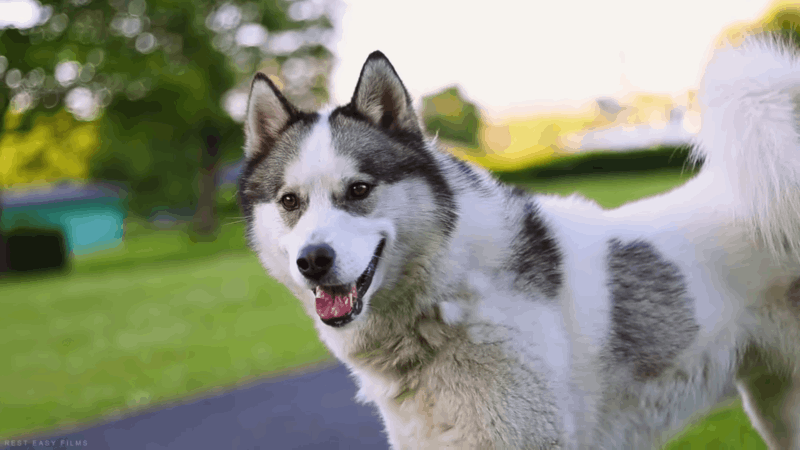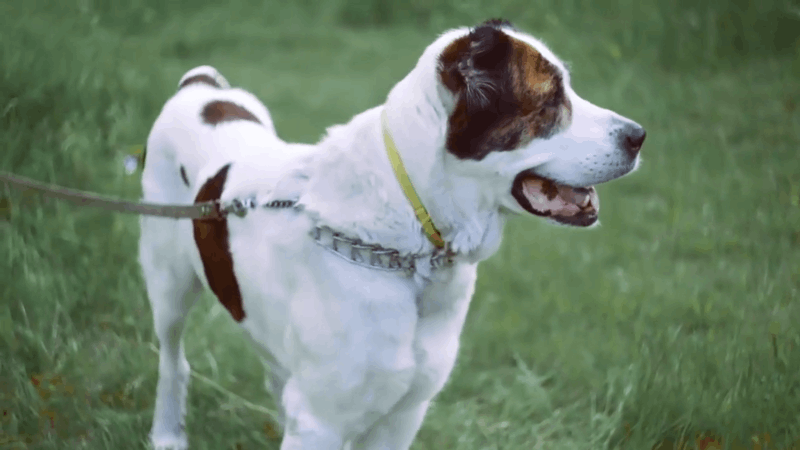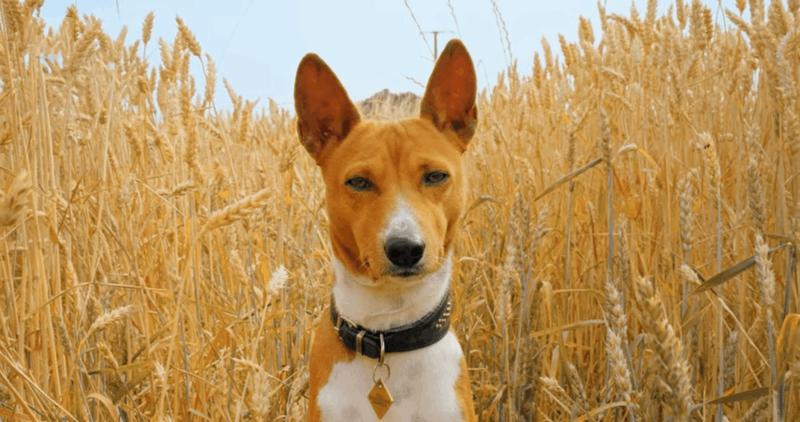No products in the cart.
For pet owners, kennel cough in dogs can be a source of concern and discomfort. This common respiratory infection affects the upper respiratory tract, leading to a persistent dry cough often likened to a honking sound. To ensure our beloved friends are healthy, it is crucial to comprehend the causes, symptoms, and available treatments for kennel cough.
Everything you need to know about canine kennel cough—from its contagiousness to practical management techniques—will be covered in this blog.
What is Kennel Cough in Dogs?

Dogs frequently contract infected tracheobronchitis, commonly known as kennel cough. It’s characterized by a persistent, dry cough that can be quite distinctive, often likened to a honking sound. While it’s usually not life-threatening, kennel cough can cause discomfort and irritation to affected dogs. Ensuring the health of our animal friends requires us to identify the signs and seek the necessary therapy.
Symptoms of Kennel Cough
The symptoms of kennel cough in dogs can vary in severity but typically include:
- Persistent dry cough: The most common and recognizable symptom of kennel cough is a persistent, dry cough. This cough is often described as a hacking or honking sound and may be more noticeable when the dog is excited or active.
- Gagging or retching: Dogs with kennel cough may experience episodes of gagging or retching, especially after coughing fits. This can be distressing for the dog and may lead to further irritation of the throat and airways.
- Nasal discharge: Some dogs with kennel cough may exhibit nasal discharge, which can range from clear and watery to thick and mucus-like. The discharge may be more prominent during coughing episodes or when the dog is lying down.
- Mild fever: In some cases, kennel cough in dogs may develop a mild fever as their body responds to the infection. A fever may coincide with other signs of illness, including lethargy and reduced appetite.
- Lethargy: Kennel cough can cause dogs to feel lethargic or less energetic than usual. They may seem more tired than usual and may be less interested in activities or play.
- Loss of appetite: Dogs with kennel cough may experience a loss of appetite due to throat irritation or discomfort. They may be less interested in eating their regular meals and may have difficulty swallowing.
- Secondary complications: In severe cases or if left untreated, kennel cough in dogs can lead to secondary complications such as pneumonia. Signs of pneumonia may include difficulty breathing, rapid breathing, coughing up blood, and bluish discoloration of the gums or skin.
It’s important to note that not all dogs will exhibit all of these symptoms, and the severity of symptoms can vary depending on factors such as the dog’s age, overall health, and the presence of underlying medical conditions. If you suspect that your dog may have kennel cough, it’s important to consult with a veterinarian for an accurate diagnosis and appropriate treatment.
What Causes Kennel Cough?
Numerous infectious agents, including bacteria and viruses, can result in kennel cough in dogs. The most common culprits include:
- Bordetella bronchiseptica: Bordetella bronchiseptica is a primary cause of kennel cough, infecting dogs’ respiratory tracts and causing airway inflammation. Highly contagious, it spreads easily through respiratory droplets among dogs.
- Canine parainfluenza Virus (CPIV): Kennel cough is a typical side effect of canine pneumonia caused by the extremely contagious Canine Parvovirus (CPIV) in crowded settings such as dog parks, shelters, and kennels. It impairs immunity, making one more vulnerable to follow-up bacterial infections.
- Canine adenovirus Type 2 (CAV-2): It is a virus that can contribute to kennel cough, primarily affecting the respiratory tract. Fever, nasal discharge, and coughing are some of the symptoms. While closely related to canine hepatitis virus (CAV-1), CAV-2 typically causes respiratory symptoms rather than liver-related issues in dogs.
- Other pathogens: In addition to Bordetella bronchiseptica, CPIV, and CAV-2, other infectious agents such as canine influenza virus (CIV) and mycoplasma can also play a role in kennel cough. These infections affect dogs and exacerbate respiratory issues.
Transmission occurs through close contact with infected dogs or contaminated environments. In addition to preventing the spread, vaccination against certain infections helps lessen symptoms. Minimize the risk of transmission by practicing good hygiene.
Is Kennel Cough Contagious to Other Dogs?
Dogs can catch kennel cough from one another quite easily. In places where dogs gather, such as kennels, shelters, and dog parks, it spreads quickly. By respiratory droplets, the bacteria and viruses that cause kennel cough can spread. Even vaccinated dogs can contract the infection, though vaccination may lessen symptoms. Transmission can be stopped by keeping affected dogs apart and practicing good hygiene.
Can a Dog Die of Kennel Cough?

While kennel cough is typically not life-threatening, in rare cases, it can lead to severe complications such as pneumonia, especially in young puppies, elderly dogs, or those with weakened immune systems.
Although most dogs recover fully with proper treatment, the risk of fatality exists, particularly if the infection progresses and affects the lower respiratory tract. For affected dogs, the best course of action is to seek veterinarian care as soon as possible and monitor symptoms attentively to avoid major problems.
Home Treatment for Kennel Cough

Kennel cough symptoms can be reduced and your dog’s recuperation can be aided with home remedies. Here are some steps you can take:
- Rest: Ensure your dog gets plenty of rest in a warm, quiet environment to aid in recovery.
- Hydration: Provide fresh water at all times to prevent dehydration, especially if your dog is reluctant to drink due to throat irritation.
- Humidifier/Vaporizer: Use a humidifier or vaporizer to moisten the air and soothe your dog’s irritated throat.
- Soft food: Offer soft, easily digestible food to encourage eating, as coughing may make swallowing difficult.
- Avoid irritants: Minimize exposure to cold temperatures and environmental irritants that can exacerbate coughing episodes.
- Supplements: Consider adding supplements such as omega-3 fatty acids or immune-supporting vitamins to your dog’s diet to boost overall health and immunity.
While home treatment can help manage mild cases of kennel cough, it’s essential to monitor your dog closely and seek veterinary care if symptoms worsen or if your dog shows signs of respiratory distress. In addition to offering tailored advice, your veterinarian might, if needed, prescribe drugs like cough suppressants or antibiotics.
CBD and Kennel Cough in Dogs

CBD is becoming more well-known as a natural treatment for a variety of conditions in both people and animals, including dogs. Some dog owners might be curious about the potential benefits of CBD for treating their pets’ kennel cough symptoms.
There is little scientific study particularly on the efficacy of CBD in treating kennel cough in dogs, despite anecdotal evidence to the contrary showing that it may help reduce pain, inflammation, and anxiety. Before adding CBD to your dog’s treatment plan, it’s important to use caution and speak with a veterinarian about its application for kennel cough.
Is It Safe to Use CBD for Kennel Cough in Dogs?
The safety of using CBD for kennel cough in dogs has not been extensively studied. When given in the right dosages, CBD is generally thought to be safe for dogs; nevertheless, there are some possible hazards and side effects to be aware of, such as sleepiness, dry mouth, and gastrointestinal disturbance. Additionally, the quality and purity of CBD products can vary significantly, so it’s crucial to choose products from reputable manufacturers and follow dosing instructions carefully.
Before giving your dog CBD for kennel cough or any other condition, it’s best to consult with a veterinarian to determine the most appropriate treatment approach for your pet’s specific needs.
The Difference Between CBD and Traditional Treatment for Dogs with Kennel Cough
When comparing CBD to traditional treatment for dogs with kennel cough, it’s essential to consider several factors:
| Aspect | CBD Treatment | Traditional Treatment |
| Mechanism of Action | May alleviate symptoms. | Targets infection with antibiotics. |
| Administration | Given orally as CBD oil or treats. | Oral medications like antibiotics. |
| Side Effects | May cause drowsiness and GI upset. | This can lead to GI upset and antibiotic resistance. |
| Safety Concerns | Generally considered safe. | Established safety profile, but the risk of resistance. |
| Effectiveness | The efficacy for kennel cough is uncertain. | Antibiotics effectively target infection. |
| Consultation Required | Consult with the vet recommended. | Requires vet consultation for diagnosis. |
| Availability | Over-the-counter products are available. | Prescription medications are needed. |
| Cost | Cost varies by product quality. | Cost varies by prescribed medication. |
| Additional Considerations | Uncertain efficacy as a standalone treatment. | Established treatment protocol. |
Making educated judgments regarding the most effective treatment plan for their dogs’ kennel cough can be facilitated by pet owners’ awareness of these variations.
Conclusion
Kennel cough in dogs is a common respiratory infection that can cause discomfort and concern for pet owners. Even while it normally poses no threat to life, it is crucial to identify and treat it as soon as possible to avoid problems and protect our beloved friends. Kennel cough can be prevented and managed by pet owners by being aware of the symptoms, causes, and available treatments. This will keep their pets happy and healthy.
Hello, I am Hazel Bennett, an experienced copywriter specializing in the fascinating topic of CBD for dogs. With a passion for pet wellness and extensive knowledge of CBD’s potential benefits, I am here to provide you with informative and engaging content.



